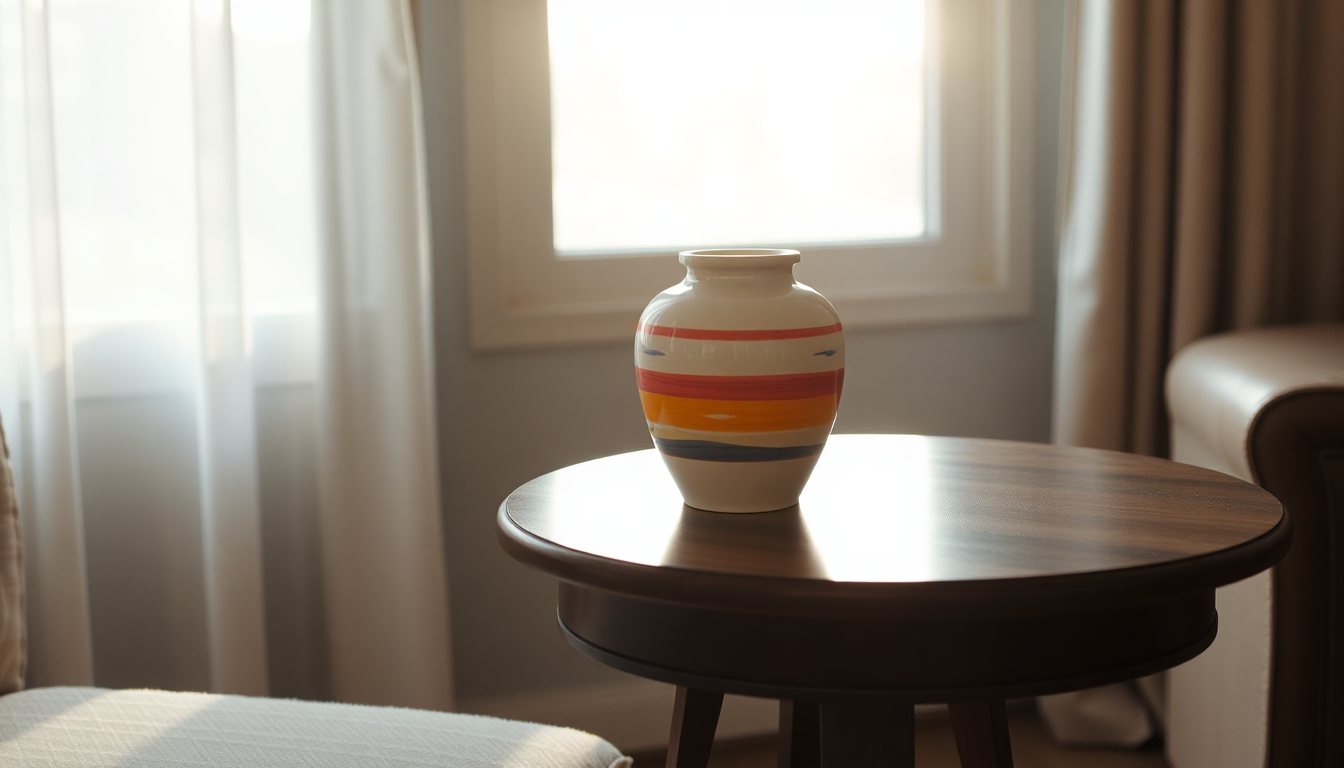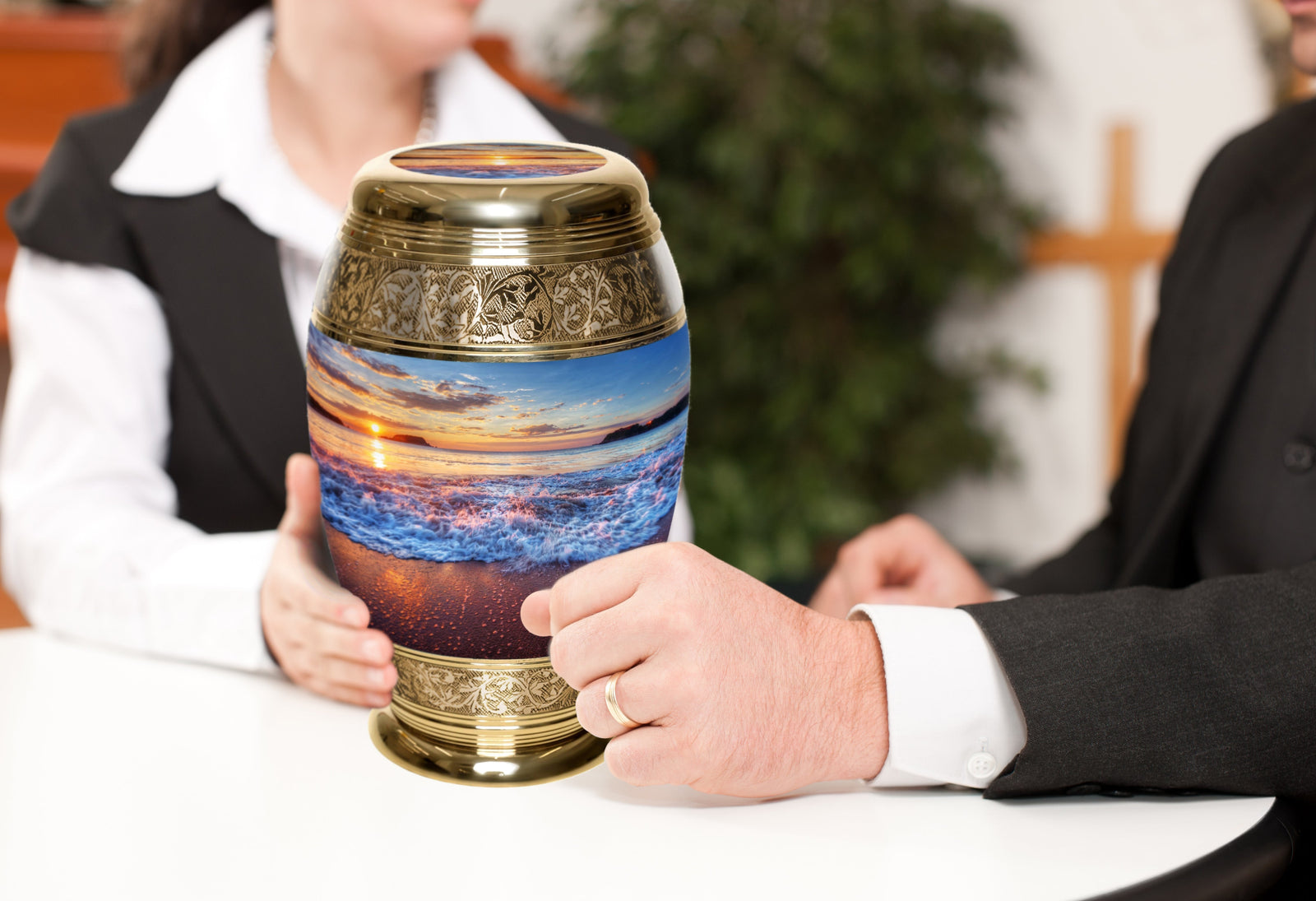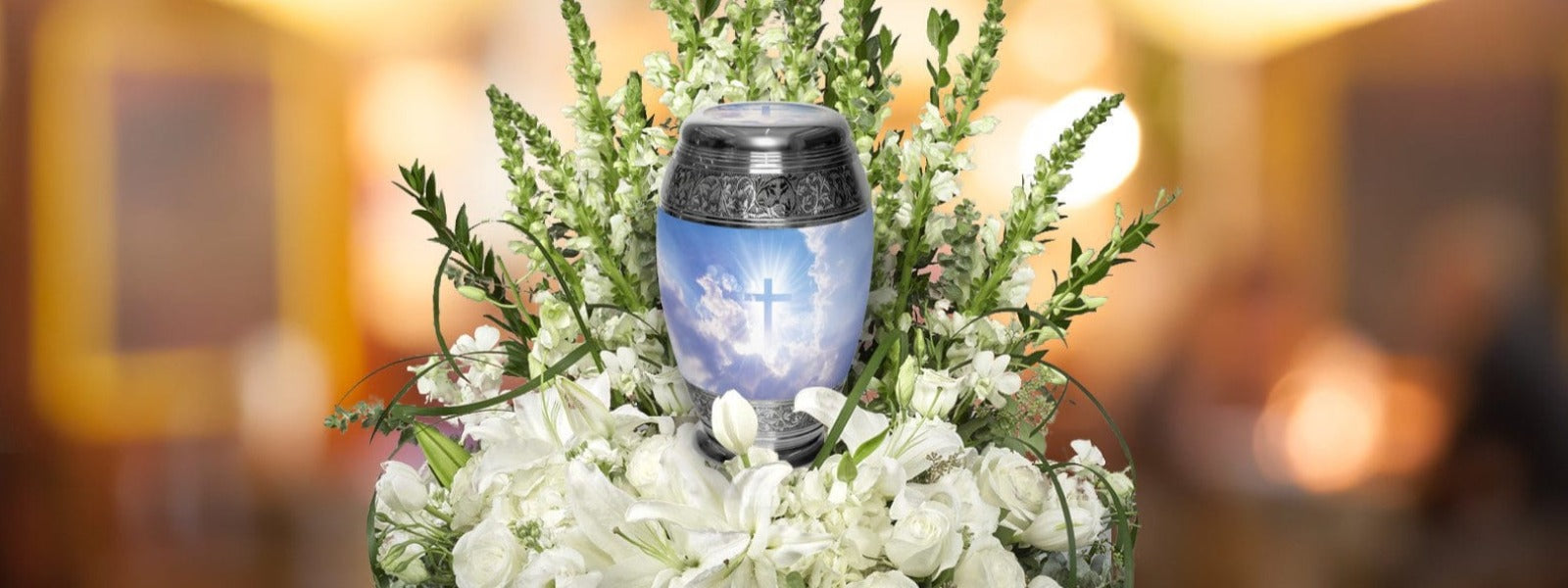Yes, metal cremation urns can be buried. However, there are a few considerations to keep in mind:
1. Degradation Over Time:
Depending on the type of metal used for the urn (brass, bronze, stainless steel, etc.), the urn will degrade over time once buried, especially in environments with high moisture. Some metals are more resistant to corrosion than others, but no metal is entirely immune.
2. Burial Vaults:
Many cemeteries require that urns be placed inside a burial vault when they are interred. The vault serves to protect the urn from the weight of the earth and the equipment used in cemetery maintenance, and it also prevents the ground from settling or collapsing over the burial spot.
3. Environmental Considerations:
Some people prefer biodegradable urns for burial to minimize environmental impact and allow the ashes to naturally return to the earth.
4. Cost:
Metal urns tend to be more expensive than some other urn types. When combined with the cost of a burial plot and vault (if required), this can increase the overall cost of interment.
5. Aesthetic and Sentimental Value:
Some families choose metal urns for burial because of their aesthetic appeal or because they feel a metal urn offers a more lasting and secure tribute to their loved one.
6. Local Regulations:
It's essential to check with the specific cemetery where the urn will be buried, as they might have regulations or requirements regarding the type of urns they accept and whether a vault is necessary.
In conclusion, while metal cremation urns can be buried, it's crucial to weigh the practical, aesthetic, financial, and environmental considerations before making a decision.
In conclusion, while metal cremation urns can be buried, it's crucial to weigh the practical, aesthetic, financial, and environmental considerations before making a decision.
Are Metal Urns TSA Approved?
When flying with cremated remains, use an X-ray-friendly container like wood or plastic, as metal urns may block screening. TSA won’t open urns, so if the contents can't be cleared via X-ray, the urn can't fly in carry-on. Carry remains onboard (not checked), check airline rules, and confirm international travel regulations.






Leave a comment (all fields required)